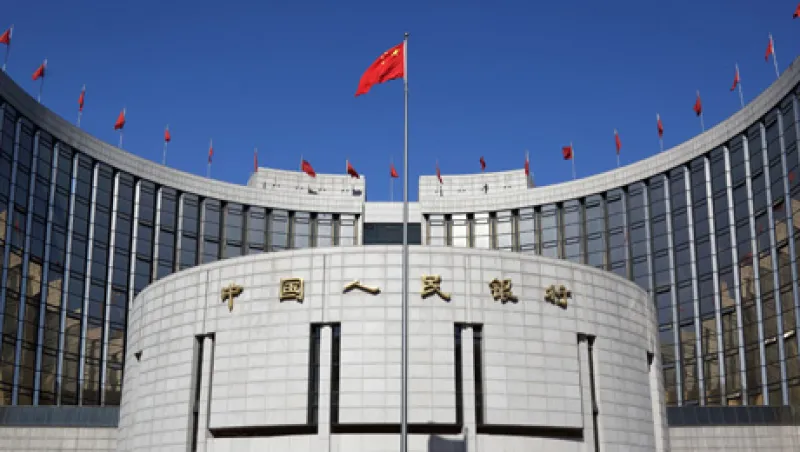The congressional deal to raise the U.S. debt ceiling has averted the threat of default, at least temporarily, but the budgetary brinkmanship in Washington will leave a lasting impact on China, the U.S.’s largest creditor.
Chinese officials were taken by surprise by the stalemate in negotiations over the U.S. budget and debt ceiling, according to analysts with close ties to senior officials in Beijing. Although the episode didn’t trigger any immediate change in the management of China’s massive foreign exchange reserves, it is likely to spur Beijing’s efforts to develop alternatives to the U.S.-centered financial system, analysts say.
The clearest evidence of that came from a commentary by the country’s official Xinhua News Agency earlier this week, which called for the “de-Americanization” of global finance.
That will be virtually impossible to achieve in the short run, because only U.S. Treasuries and the American capital market offer the depth and liquidity that China needs, says Guan Anping, a former Chinese trade official who advises major Chinese conglomerates and frequently lectures on financial market reforms at the Chinese Academy of Social Sciences, China’s leading think tank.
“Officials are operating under the assumption that the chances of the U.S. government defaulting or going bankrupt is very small,” he says. “They really don’t have a comprehensive Plan B, at least not yet.”
The People’s Bank of China held $1.28 trillion in U.S. Treasuries in July, according to the most recent Treasury data. That number is down slightly from the record high of $1.31 trillion in July 2011, just before the last debt-ceiling standoff, but up from $1.14 trillion in March 2012. The rough stability in Treasury holdings over the past two years represents a stark departure from preceding years, though. China more than doubled its holdings of Treasury securities from 2008 to 2011.
China has been diversifying its $3.5 trillion in foreign exchange reserves away from Treasuries, but “the progress has been glacial,” says Paul Schulte, an independent research analyst in Hong Kong. “I do not see any hint of a systemic move away from Treasuries. There are no major alternatives anyway.”
China has been buying more Japanese government bonds recently, observers say. According to the Japanese Ministry of Finance and the Bank of Japan, China had net JGB holdings well in excess of $230 billion in 2012. That’s a small portion of the country’s overall reserves, though, and geopolitical tensions between Beijing and Tokyo could restrain China’s appetite for more JGBs. The two countries are engaged in a fierce diplomatic battle over a disputed group of tiny islands near Taiwan called the Senkaku (as they are known in Japan) or Diaoyu (and in China) Islands.
Europe comes close to matching the U.S. market in depth and liquidity, but the euro zone debt crisis leaves China “little choice” but to continue buying U.S. Treasuries, says Guan.
Geopolitically, the debt standoff has been a boon for China’s ambitions of extending its influence in Asia. The U.S. government shutdown forced President Barack Obama to cancel his attendance at the Asia-Pacific Economic Cooperation summit held in Bali, Indonesia, in early October. His absence, and the divisive budget battle in Washington that threatened to roil global markets, has hurt the image of America in Asia, says Laurence Brahm, a Beijing-based American lawyer who has advised the Chinese government on market reforms.
“China is quite aware of its newfound position amidst the shifting tectonic plates of the global financial system and shifting global power,” says Brahm. “This was most acutely highlighted at the APEC meeting and post-APEC East Asia Summit, where Premier Li Keqiang gifted trade partners with a plethora of new agreements. China is putting its money where its mouth is, which ties into the global perception, held particularly in the G-77, or the group of top 77 economies, which increasingly is seeing Obama as all talk, with no money.”
The Chinese government is only in the early stages of working on a long-term plan to diversify away from its heavy reliance on the dollar and U.S. Treasuries, Brahm says. “I don’t think they expected this level of struggle in the U.S. Congress and the possibility of default to come so quickly, but it doesn’t mean they haven’t anticipated it,” he says. “Since the rise of President Xi Jinping [who assumed office in November 2012], you have seen the agenda of forming an alternative financial architecture.”
During his first trip abroad to the BRICS summit — involving the leaders of Brazil, Russia, India, China and South Africa — in Durban, South Africa, earlier this year, Xi announced the first international agenda of his presidency: an initiative to form a BRICS development bank and a BRICS monetary fund, which would serve as alternatives to the World Bank and the International Monetary Fund. The BRICS nations have very different economic and political motivations, though, and there has been little sign of progress on either proposed institution.
China is accelerating the internationalization of the renminbi, particularly as a currency for trade settlement. On the eve of the annual meetings of the IMF and World Bank, the People’s Bank of China announced a new swap agreement with the European Central Bank to promote the use of the renminbi. “China’s RMB is far from being a global alternative currency,” says Brahm. But, he says, the potential U.S. default has underscored “the urgency of a new financial architecture for China’s leadership.”
Read more on banking and capital markets.






